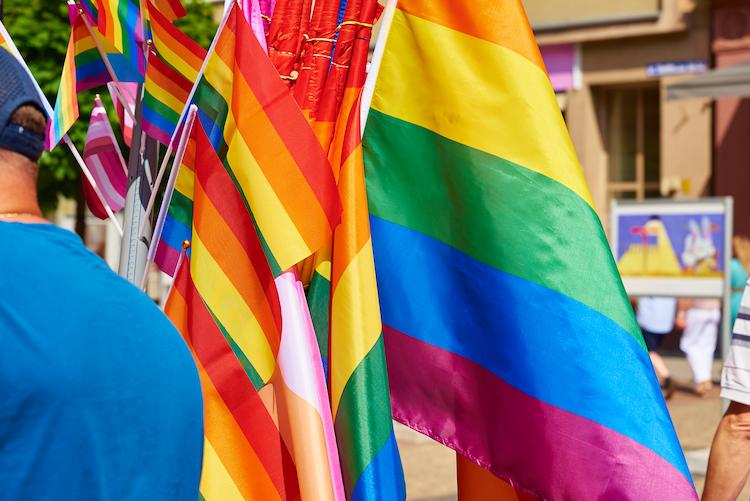SCOTUS Adds LGBTQ Book Case to Docket

The U.S. Supreme Court has added another closely watched First Amendment case to its docket. Mahmoud v. Taylor involves whether public schools burden parents’ religious rights when they require elementary school students to participate in instruction on LGBTQ-themed books against their parents’ religious convictions and without notice or opportunity to opt out.
Facts of the Case
In October 2022, the Montgomery County Board of Education announced that, through its regular curriculum adoption process, it had approved a group of LGBTQ-Inclusive Books as part of the English Language Arts Curriculum for use in Montgomery County Public Schools. As detailed in court documents, the books as a whole express their authors’ views on sexual orientation and gender identity by portraying homosexual, transgender, and non-binary characters in various situations. For example, the alphabet primer Pride Puppy!, which is the sole text expressly approved for use in pre-Kindergarten and Head Start classrooms, depicts a family whose puppy gets lost amidst a LGBTQ-pride parade, with each page focused on a letter of the alphabet. The three- and four-year-old audience is invited to look for items such as “[drag] king,” “leather,” “lip ring,” “[drag] queen,” and “underwear.”
The Board initially allowed parents to opt their kids out. It later reversed course, saying that no opt-outs would be permitted and that parents would not even be notified when the storybooks were read. A group of Muslim, Jewish, and Christian parents filed suit, not challenging the curriculum, but arguing that compelling their elementary-age children to participate in instruction contrary to their parents’ religious convictions violated the Free Exercise Clause. At the outset of the litigation, the Parents moved for a preliminary injunction to require the Board to provide such notice and an opt-out option. After the district court denied their motion, the Parents appealed.
Fourth Circuit’s Decision
The Fourth Circuit Court of Appeals affirmed. It held that given the Parents’ broad claims, the very high burden required to obtain a preliminary injunction, and the scant record before the court, it was “constrained to affirm the district court’s order denying a preliminary injunction.”
In reaching its decision, the Fourth Circuit concluded that the Parents failed to demonstrate their free-exercise rights were burdened because no one was forced “to change their religious beliefs or conduct.” In support, it cited that Supreme Court precedent requires some sortof direct or indirect pressure to abandon religious beliefs or affirmatively act contrary to those beliefs.
The Fourth Circuit also rejected the Petitioners’ reliance on Wisconsin v. Yoder, 406 U.S. 205(1972),to argue that their children are being compelled to attend classroom instruction that violates their religious views. In Yoder, the Supreme Court held that “Amish children could not be required to comply with a state law demanding that they remain in school until the age of 16 even though their religion required them to focus on uniquely Amish values and beliefs during their formative adolescent years.”
According to the appeals court, “This argument that compelled presence or exposure necessarily establishes the existence of a burden relies on too expansive a reading ofYoder, a case which has been markedly circumscribed within free exercise precedent in the decades since it was decided.”
Issues Before the Supreme Court
The Supreme Court granted certiorari on January 17, 2025. The justices agreed to consider the following question:
Do public schools burden parents’ religious exercise when they compel elementary school children to participate in instruction on gender and sexuality against their parents’ religious convictions and with-out notice or opportunity to opt out?
Oral arguments have not yet been scheduled. However, a decision is expected before the term ends in June/July.
Previous Articles
SCOTUS Decision in Bowe v. United States Is First of the 2026 Term
by DONALD SCARINCI on February 5, 2026
In Bowe v. United States, 607 U.S. ___ (2026), the U.S. Supreme Court held that Title 28 U.S.C. § ...
SCOTUS Rules State Can’t Immunize Parties from Federal Civil Liability
by DONALD SCARINCI on January 29, 2026
In John Doe v. Dynamic Physical Therapy, LLC, 607 U.S. ____ (2025) the U.S. Supreme Court held that...
Supreme Court to Address Racial Discrimination in Jury Selection
by DONALD SCARINCI onWhile the U.S. Supreme Court has concluded oral arguments for the year, it continues to add cases t...
The Amendments
-
Amendment1
- Establishment ClauseFree Exercise Clause
- Freedom of Speech
- Freedoms of Press
- Freedom of Assembly, and Petitition
-
Amendment2
- The Right to Bear Arms
-
Amendment4
- Unreasonable Searches and Seizures
-
Amendment5
- Due Process
- Eminent Domain
- Rights of Criminal Defendants
Preamble to the Bill of Rights
Congress of the United States begun and held at the City of New-York, on Wednesday the fourth of March, one thousand seven hundred and eighty nine.
THE Conventions of a number of the States, having at the time of their adopting the Constitution, expressed a desire, in order to prevent misconstruction or abuse of its powers, that further declaratory and restrictive clauses should be added: And as extending the ground of public confidence in the Government, will best ensure the beneficent ends of its institution.





